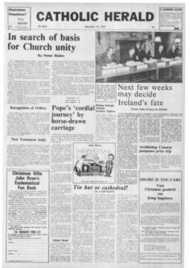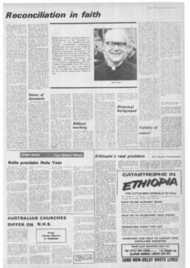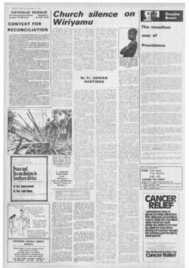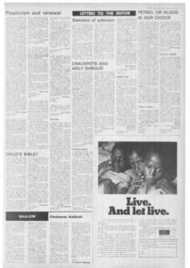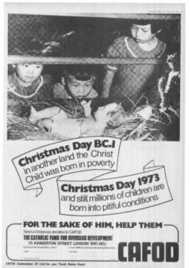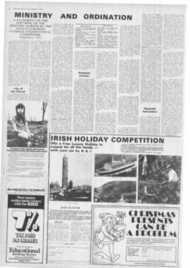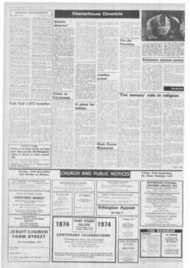Page 2, 14th December 1973
Page 2
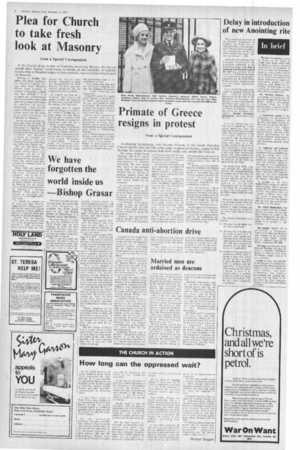
Report an error
Noticed an error on this page?If you've noticed an error in this article please click here to report it.
Tags
Share
Related articles
Chr Attacks Uranium Project
Our Vested Interest In Apartheid
Refreshing Attack On South Africa Arms Issue
Preparing For The Birth
Ichallenge Fromi Africa
THE CHURCH IN ACTION
How long can the oppressed wait?
At the annual lunch of the United Kingdom South Africa Trade Association the chairman, Mr. W. E. Luke, said that as a practising Christian he was disgusted at the World Council of Churches' attitude towards Frelimo and other "guerrilla" organisations in Southern Africa.
"I don't think anyone in South Africa cares whether or not they invest in South African shares," he said, "but to give financial support to murderous anarchists puts in doubt not only the wisdom but also the sanity of their leaders."
Not all "practising Christians" will agree with Mr. Luke. Indeed, those who attend vigils of prayer on December 16 to mark the first anniversary of the Wiriyamu massacre, in which between 400 and 500 Mozambique villagers were wiped out by Portuguese troops, may well he wondering who really are the "murderous anarchists."
At the annual conference of Pax Christi held in November in the Chaplaincy of Birmingham University, the lecturer, Fr. Adrian klastings, who translated and published in The Times a report of the Wiriyamu massacre, spoke of his attitude to Frelimo.
Initially careful to shun all association with the guerrilla organisationfor fear of damaging his credibility, Fr. Hastings explained that reports of wholesale murder carried out by Frelimo hitd left him uncertain.
But he had become increasingly convinced that these reports were sheer lies. Missionaries in Tete had told hint that although Frelimo might have killed individuals there was no evidence of massacres comparable to those carried out by government t roops. •
On the whole, Fr. Hitstitigs thought Frelimo was "an extremely responsible movement in a difficult situation." Nevertheless he was torn between support and nonsupport.
Non-violent change was clearly preferable. But in pattern of government violence where arrest and torture were commonplace and where there was no evolution towards a position in which 97 per cent of the population controlled the country, the chances of nonviolence succeeding were dubious.
A non-violent approach, he said, rested on the assumptions that the oppressor had more to lose than to gain. that there was adequate discipline among the oppressed. and that people were prepared to wait an indefinite .period for an improvement in conditions.
The Christian outsider was in a dilemma. It might be possible to effect change externally through economic pressure and publicity—but how long could we expect the oppressed to
If English Catholics. who are especially involved because of the Anglo-Portuguese alliance and the position of the Catholic Church in Portugal, refused to help Frelimo because the organisation sometimes employed violence, were they not in effect deciding against those whom Frelimo tried to help?
l'r. Hastings did not know the answer. But he warned there was it danger of being "antiincarnational" opting out of effectiveness in "the mucky world in which we live."
Michael Duggan
blog comments powered by Disqus


